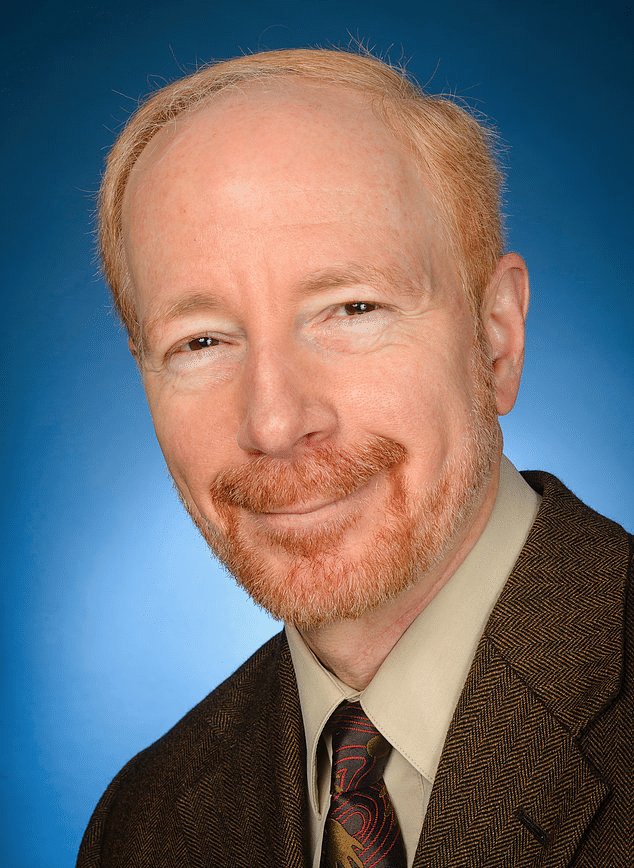
Πηγή φωτογραφίας: https://healgrief.org/lets-talk-death/robert-neimeyer/
O Robert Neimeyer, είναι μία από τις σημαντικότερες προσωπικότητες στον χώρο της απώλειας και του πένθους παγκοσμίως με ένα πολύ μεγάλο βιογραφικό. Είναι Επίτιμος Καθηγητής στο Τμήμα Ψυχολογίας του University of Mephis και διευθυντής του Portland Institute of Loss and Transition, το οποίο προσφέρει δια ζώσης και διαδικτυακά εκπαίδευση στη θεραπευτική του πένθους. Είναι, επίσης, συγγραφέας 35 βιβλίων και πέραν των 600 άρθρων… Το όνομά του είναι δεμένο με τη σπουδαιότητα και την αναγκαιότητα της νοηματοδότησης της εμπειρίας της απώλειας και του πένθους.
Πριν λίγο καιρό, είχα τη χαρά και την τιμή να συνομιλήσω μαζί του και να καταγράψω την κουβέντα μας αυτή σε μορφή συνέντευξης στο πλαίσιο του 13/14ου τεύχους του Ηλεκτρονικού Περιοδικού της Ιεράς Μητροπόλεως Κυρηνείας “Συμβολή”, το περιεχόμενο του οποίου αφορούσε σε εργοβιογραφίες.
Διαβάστε κάποια αποσπάσματα της συνέντευξης αυτής εδώ:
―How would you describe yourself, Professor Robert Neimeyer? Besides your academic and professional expertise as a grief therapist, who is the person behind the name Robert Neimeyer?
―Well, Robert Neimeyer is one version of the universal human being. So along with everyone who is reading this page, along with you and all of us, I’m also a person whose life is littered with losses of different kinds as we navigate this earthly odyssey. I suppose what defines my life in part is how I have αccommodated the losses and tried to make sense of them. I certainly am more than just a psychologist and more than just a person who has known loss and grief. I also have played the game of racquetball and I’m learning the game of pickleball. I write poetry, especially at moments when I feel despair and sadness. I enjoy drawing, painting, reading, and writing. All of these are important to me, and I like giving my body the chance to exercise. I especially love the time spent with people, especially creative people like yourself!
…
– I recall you mentioning that the past can be altered, which intrigued me and held significant meaning. Does grief therapy aid grievers in transforming their perspective on the past or in finding equilibrium in their present, as you currently describe?
– It’s a very good question, Xenia. To respond to the first part of your question, if grief
therapy is necessary, the answer is certainly not! In the larger scheme of things, people have been losing and living in light of loss for as long as we have been a species, and indeed before that. In our evolutionary development, every living thing will die. When we are creatures oriented to attachment, really wired or programmed for attachment in a world of impermanence, we will experience loss repeatedly and we will be affected by it. For the great majority of human history, we’ve managed to adapt to that circumstance without grief therapists. Grief therapists only have been around for a few decades, and psychotherapy itself has scarcely been around for 100 years. So, in the longer frame, it’s a very brief contribution to the human condition. And, of course, the role of religion and culture, the support of social systems, families, villages—this is traditionally how people have accommodated loss and it still is.
Grief therapy is most helpful in those cases where people feel stuck in their grief in some way—when it goes on and on and on interminably, or where it gets worse and worse and worse across time rather than better. Ample research indicates that about 10% of people may struggle with that kind of prolonged and functionally limiting or disabling kind of grief.
That’s really where grief therapy is helpful, in identifying the places people get stuck and then trying to help them find a way over, under, around or through those blockages that keep them from grieving adaptively.
Grief itself is an adaptive response. It’s a way for us to slow down and be motivated by our pain. We begin to reappraise our connections, our investments in the world, our beliefs, our way of being, and then gradually revise them. Grief is an adaptive process that sometimes becomes maladaptive when we find ourselves unable to move forward in the process.
To come to the second part of your great question, what do we help people do with grief?, there are a lot of ways of responding to that. The general one that you mentioned, I think, is very relevant. We feel, especially in the context of death and loss, that nothing will return the world for which we yearn, at least in a literal sense. Our loved ones will not come back to life. We can feel a great sense of fatalism about that, a great sense of devastation and loneliness. Sometimes unfinished business arises from the nature of the relationship that now feels as if it cannot be addressed or resolved, as in cases when we experience conflict or hurt regarding some aspect of the person’s life shared with us, or maybe our sense of guilt of not having done things we should have.
But my comment that you remembered correctly is that, in a way, the only thing we can change is the past. The present is just an instant, and it’s gone. The future is only a hypothesis. The only thing we have that we can change and work with is the past. We change it by finding in it new significance, new meaning. We reconstruct the past, in order to reconstruct the future. We do it across the bridge of the present moment. So, I see grief therapy as offering those present moment opportunities for deeply reviewing and revising our narratives of who we are, who we have been and who we are becoming. It helps when we can do this in the presence of an empathic and compassionate person. Sometimes a therapist can be a great help to those who are suffering, and are undertaking that process.
Διαβάστε ολόκληρη τη συνέντευξη εδώ:
